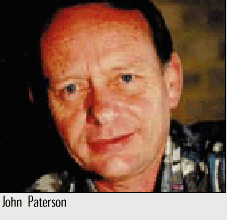|
Church to hit the road in quest for justice by Brian Thomas
Such a walk---called a ``hikoi''---is a traditional Maori way of gathering grass-roots support for a protest at unjust political structures. The Church's General Synod--- Te Hinota Whanui called for a ``Hikoi of Hope'' when it met in May. Synod listened solemnly as delegates told horror stories of debilitating poverty, especially among Maori and Polynesian peoples. One priest broke down and wept at the rostrum as he described how the gap between rich and poor is widening in the land colloquially known as ``God's Own Country.'' The ``Hikoi of Hope''--culminating in a rally in front of Parliament on October 1--is intended to show politicians that ``enough is enough!'' With more than two months to go the newly elected Primate, Presiding Bishop John Paterson (Auckland), says the hikoi already is gathering momentum and that ``there are signs that it could be really big.'' Other denominations have indicated their whole-hearted support, and various secular groups say they are prepared to join the Church in its march for justice. Along the way participants will pray, share stories and sing songs of faith. Walkers are expected from the furthest reaches of the country, with parishes offering hospitality along the way. A train may be chartered on the last day to ensure walkers from far off arrive at the appointed time. The hikoi will demand from the Government ``real jobs, a public health system we can trust, benefit and wage levels that move people out of poverty, affordable housing and accessible education.'' Bishop Paterson, a man described as ``fired by a burning gentleness,'' sees his role in terms of a bridgebuilder and reconciler, and says the Church's goal is to actually get inside Parliament and talk to those who have the power to fashion policy. To this end the Church has booked a meeting hall inside Parliament Buildings for a face-to-face dialogue. Bishop Paterson says Government members were
elected on the basis of policy statements looking to a better society. ``We want to tell them that we've come to
support them, not to criticise them.'' In practical terms this support would mean ``a continuing dialogue about
what the Church sees as political alternatives,'' Bishop Paterson says. With a wry smile, he adds that the bishops
should be fit and able for their long march after having to do so much walking around the Lambeth campus. |

 All
16 bishops of the Church in Aotearoa, New Zealand and Polynesia will put on their walking shoes after Lambeth and
march to their Parliament in Wellington. They are walking with their people to tell the Government that the level
of poverty in Aotearoa New Zealand is intolerable, and that there has to be a better way of running the country
for the good of all.
All
16 bishops of the Church in Aotearoa, New Zealand and Polynesia will put on their walking shoes after Lambeth and
march to their Parliament in Wellington. They are walking with their people to tell the Government that the level
of poverty in Aotearoa New Zealand is intolerable, and that there has to be a better way of running the country
for the good of all.